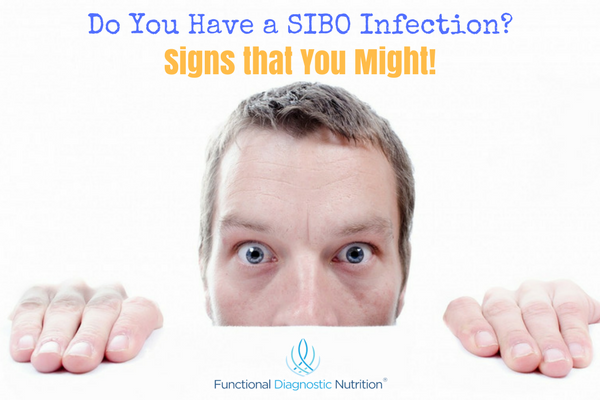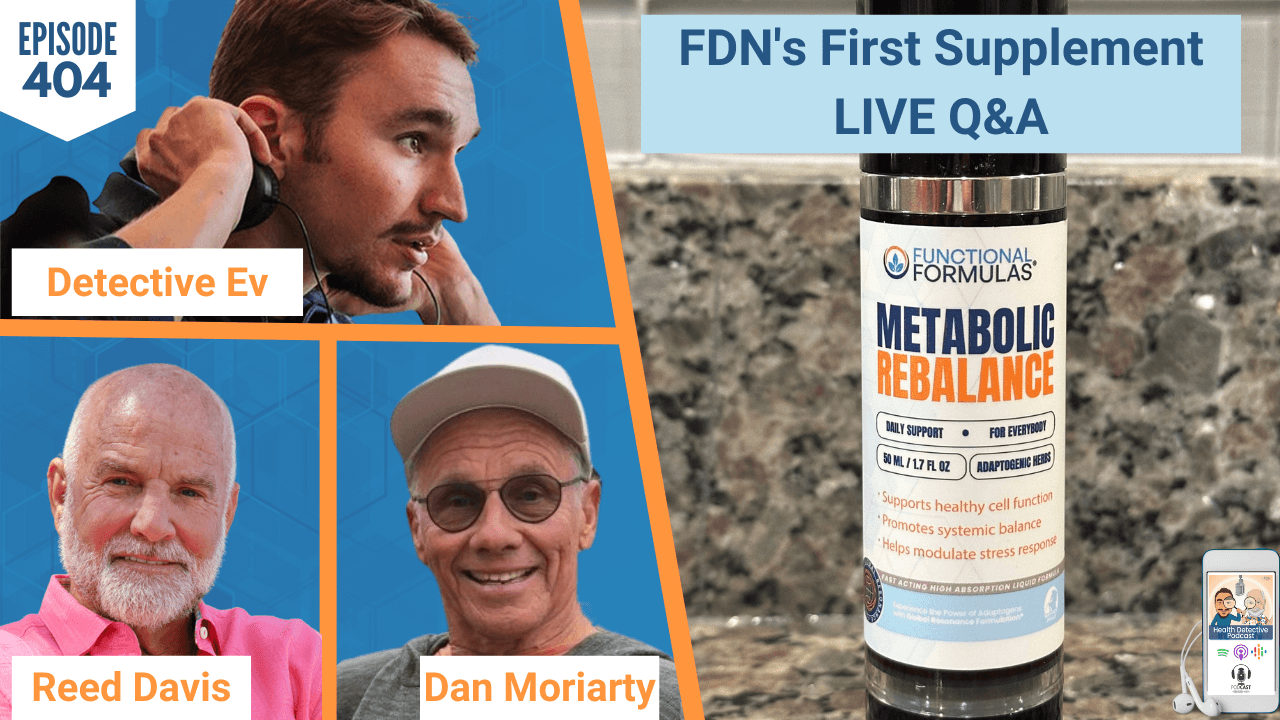Each day, more and more people are being affected by digestive disorders. Many go to see their doctor and are diagnosed with disorders such as IBS, Crohn’s disease, Ulcerative Colitis and leaky gut. The typical course of action is for them to be prescribed medication to help with the symptoms of those diseases. But more often than not, there is an underlying SIBO infection that goes undetected and remains untreated.
SIBO (small intestinal bacterial overgrowth) is a disorder caused by overgrowth of bacteria in the small intestine. Although there are usually a large amount of different digestive bacteria throughout the entire digestive system, in the small intestine, the number of bacteria should be much lower than in other areas.
Become a SIBO expert with this special course from FDN.
As the longest section of the digestive tract, food particles move through the small intestine is where they are immersed in gastric juices. The food particles are then further broken down and the nutrients needed by the body are extracted. The nutrients are then absorbed into the body.
But problems occur when the number of bacteria in the small intestine grow to abnormally large numbers. Digestion becomes compromised and stops functioning optimally. The overgrowth of bacteria overtakes the small intestine and can lead to poor absorption of nutrients and can ultimately cause damage to the entire digestive system.
So how do you know if you have SIBO?
Excess gas
Do you tend to get gassy, belch frequently and have problems with stomach bloating after you eat? Certain strains of gut bacteria feed off of sugar and refined carbohydrates and ferment them. As part of the fermentation process, gas is produced. So when you eat a diet with foods that contain refined carbohydrates, the overgrowth of bacteria have plenty to feed on. Having an excess of flatulence or belching often is a big sign that you may have an overgrowth of bacteria in your small intestine.
Bloating and abdominal pain
As refined carbohydrates and sugars are broken down by the bacteria in the small intestine, excess of gas is produced. Some can get trapped in your digestive tract causing swelling in the abdominal area. This bloating can cause a feeling of tightness and abdominal pain as a result of the buildup of gas. Any gas that isn’t expelled through the body through flatulence and belching will remain trapped in your intestines until it can be released.
Diarrhea or constipation
There are two main types of SIBO that can cause different symptoms. The types are hydrogen producing SIBO and methane producing SIBO. You could have a dominance in either type, or you could have both occurring simultaneously. Hydrogen producing SIBO typically causes diarrhea and methane producing SIBO typically causes constipation.
Acid reflux and GERD
If you have struggled with acid reflux or Gastroesophageal reflux disease (GERD), and have used proton pump inhibitor drugs (PPIs) to help with symptoms, you could have a SIBO infection. The symptoms of GERD are heartburn and the regurgitation of acid up into the esophagus. PPI drugs reduce the symptoms of GERD by inhibiting production of stomach acid. But recent research shows that use of these drugs for longer periods may change the gut microbiome and encourage overgrowth of bacteria in the small intestine.
One study showed an increase of SIBO in patients using PPI therapy after only 8 weeks of use. The longer patients remained on PPI therapy, the greater percentage of them were found to have SIBO infections.
Nutrient deficiencies
When you have a SIBO infection, one potential complication is damage to the small intestine. The overgrowth of bacteria can cause inflammation throughout the small intestine and lead to damage of the gut lining. The resulting damage can prevent the small intestine from effectively absorbing the nutrients that the body needs to perform optimally.
Become a SIBO expert with this special course from FDN.
The malabsorption of fats, often encountered with SIBO can lead to deficiencies in fat soluble vitamins A, D and E. Bacterial consumption of vitamin B12 can lead to deficiencies of this vitamin. Deficiencies in iron and thiamine are also commonly seen in people with SIBO infections.
Rosacea
Rosacea is a condition that causes redness of the skin on the face. People who have rosacea may also experience small, red, pus-filled bumps as well as having small red blood vessels that are highly visible beneath the skin. Approximately 50% of people who have rosacea also have SIBO infections.
The good news for those who suffer with rosacea is that symptoms of this skin disorder are alleviated after successful treatment of SIBO, according to a recent study.
Fatigue
For those with SIBO, fatigue is an all too common symptom. This can be a result of nutrient deficiencies that are caused by malabsorption issues. It can be caused by chronic inflammation in the gut, as well. It can also be caused by toxins and food particles leaking into the body from a leaky gut.
As you can see, there are many signs that can indicate a SIBO infection. It is important to find the right practitioner to work with so that you can overcome this infection. Many doctors are unaware of how common SIBO is and as a result, it is grossly under diagnosed. A qualified FDN practitioner who is an expert on SIBO can help! Please contact [email protected] to be connected with a SIBO trained practitioner.
Are you a practitioner? Do you know how you can you help your clients overcome the effects of SIBO?
FDN is offering a special SIBO course, where you will get to the heart of what SIBO is and how you can help clients who are struggling with it. In the course you’ll learn about the main gases produced by SIBO bacteria, why it occurs, what causes it, and the symptoms you can expect to see when a client presents with SIBO.
Also, you will learn when is the best time to recommend testing for SIBO and which tests to use to determine if SIBO is present. In addition, you will learn how to interpret SIBO test report and how to create the right protocols to help your clients heal. Finally, we’ll address SIBO retesting protocols and help you identify your clients who are at greater risk of developing SIBO or having a relapse after initial treatment.
Ready to help your clients and distinguish yourself from other health experts? Become a SIBO expert.







